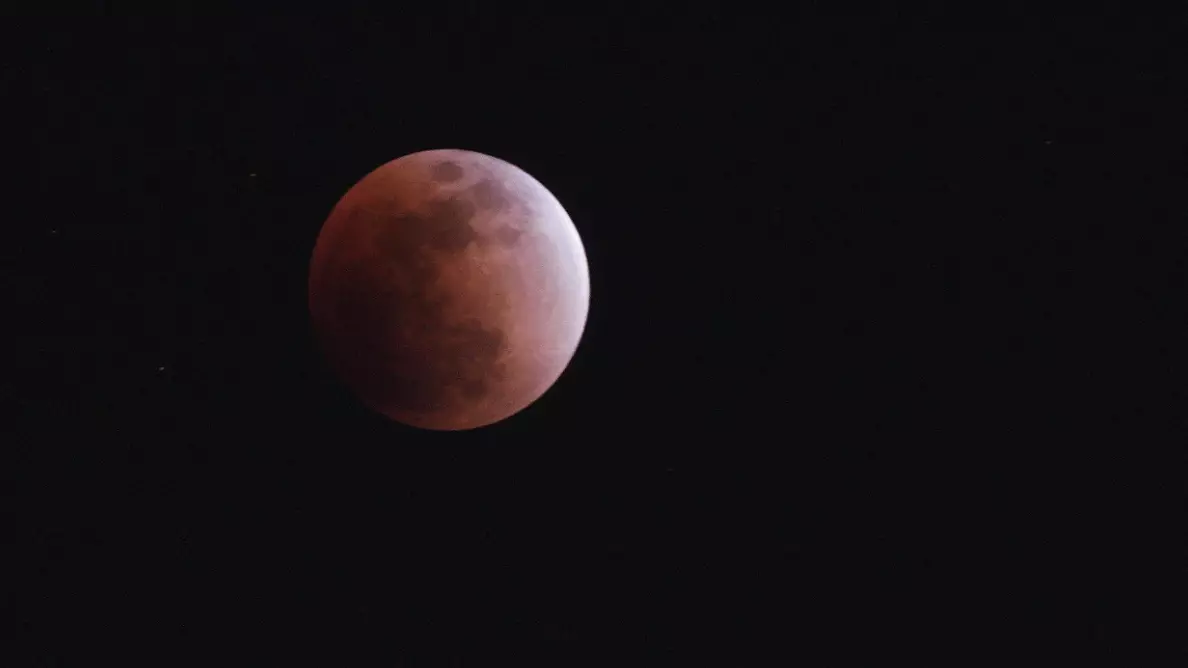
Many of us are still getting grips with the fact that there's such a thing as a 'super blue blood moon', chuffed not only because it's apparently the first in 150 years, but also because scientists decided to name a lunar phenomenon with a title that sounds like its been ripped straight out of Guardians of the Galaxy or Spaceballs.
LET THIS SMART TODDLER EXPLAIN THINGS FOR YOU:
Advert
But it is, indeed, a real thing, and the super blue blood moon - say that after a few pints - does exactly what it says on the tin. It happens when a blue moon (the second full moon of the month), a blood moon (referring to its reddish hue) and a super moon (when the moon is as close to Earth as it can possibly be) all occur at the same time, a combination that's very, very rare.
It's giving us the spectacular display today, 31 January, and is visible at various times depending on whereabouts you are in the world.
However, the weirdly-named spectacle isn't just an amazing display for the world's masses to gawp at - turns out it could also affect people's mood.
There's a long-held belief that there's a link between the moon and odd behaviour, as you'll have heard any time you're heading in to a bar when town seems particularly raucous, when the doorman looks down at you and says, wearily: 'Full moon, ain't it?'
Advert
First up, there's research that suggests the lunar cycle can have a big effect on how much sleep you get - with full moons linked to less deep sleep. And, of course, less sleep often means cranky people, meaning there's a chance the super blue blood moon might not leave you feeling so super, after all.
There are also suggestions that the moon can affect other things - Migraine.com, for example, argues that the old wives' tales about women's periods syncing up with the moon are true, which leads to hormonal shifts.
There's also the (slightly shaky) idea that the moon can have an impact on your sex drive, with one past study finding a link between the gravitation of the moon and the frequency of births. After looking at over 1,000 births in Kyoto, Japan, the 2010 study concluded: "Results of this study suggest that the gravitation of the moon has an influence on the frequency of births."
Advert
However, astronomer Professor Alan Duffy says people often look for logical solutions to illogical emotions, so it could all just us trying to rationalise our grumpiness.
"It's confirmation bias - when the full moon is up we are looking for strange behaviour or remember that we saw strange behaviour," he told nine.com.au.
If you live in North America, Alaska, or Hawaii, the event will be visible before sunrise on 31 January. Meanwhile, for those in the Middle East, Asia, eastern Russia, Australia and New Zealand, the 'super blue blood moon' can be seen during moonrise in the evening.
For the rest of us, who are unable to check out the statistical anomaly from our own shores, NASA will kindly offer a live feed of the event, which will begin at 5.30am EST (10.30am GMT) on 31 January. Nice one, NASA.
Advert
Featured Image Credit: PA